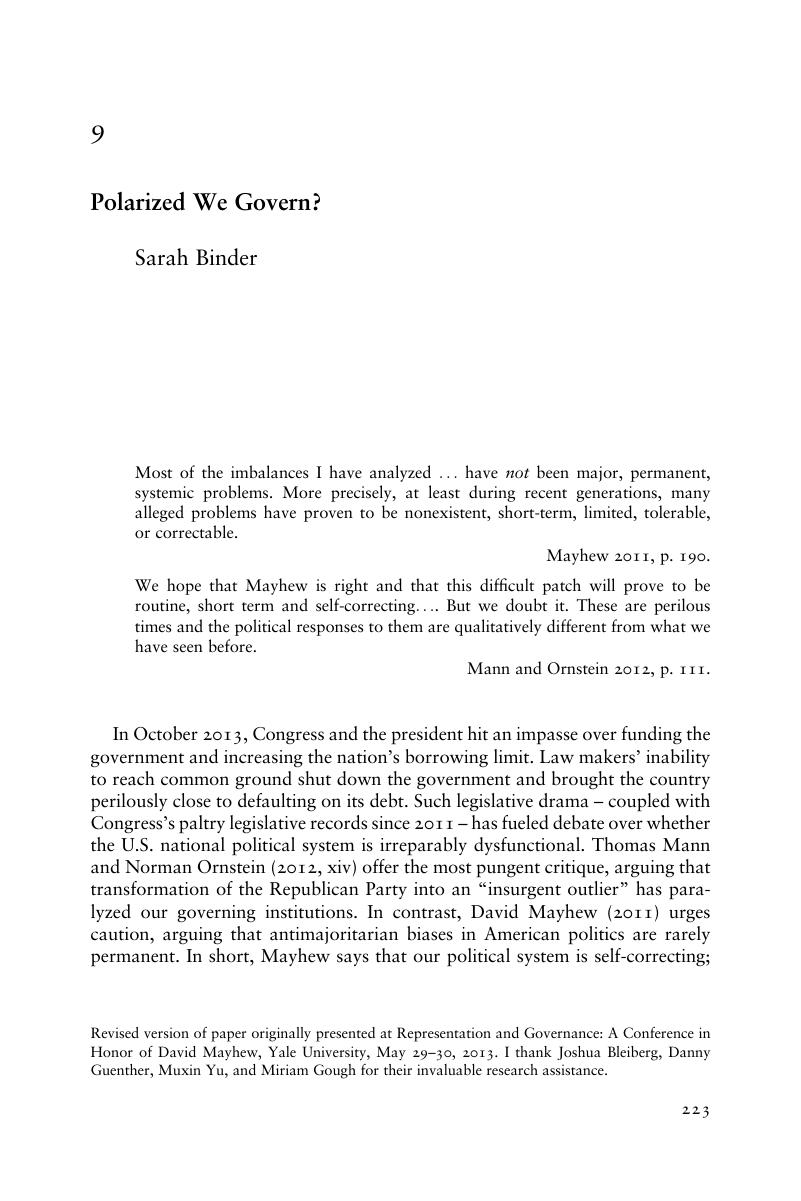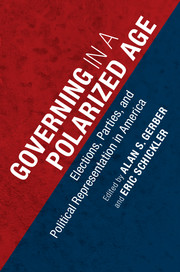Book contents
- Governing in a Polarized Age
- Governing in a Polarized Age
- Copyright page
- Contents
- Contributors
- 1 Introduction
- Part I Political Representation and Democratic Accountability
- Part II Continuity and Change in Party Organizations
- Part III Partisanship and Governmental Performance
- 9 Polarized We Govern?
- 10 What Has Congress Done?
- 11 Can Congress Do Policy Analysis?
- 12 Studying Contingency Systematically
- 13 Majoritarianism, Majoritarian Tension, and the Reed Revolution
- Part IV Conclusions
- Index
- References
9 - Polarized We Govern?
from Part III - Partisanship and Governmental Performance
Published online by Cambridge University Press: 20 October 2016
- Governing in a Polarized Age
- Governing in a Polarized Age
- Copyright page
- Contents
- Contributors
- 1 Introduction
- Part I Political Representation and Democratic Accountability
- Part II Continuity and Change in Party Organizations
- Part III Partisanship and Governmental Performance
- 9 Polarized We Govern?
- 10 What Has Congress Done?
- 11 Can Congress Do Policy Analysis?
- 12 Studying Contingency Systematically
- 13 Majoritarianism, Majoritarian Tension, and the Reed Revolution
- Part IV Conclusions
- Index
- References
Summary

- Type
- Chapter
- Information
- Governing in a Polarized AgeElections, Parties, and Political Representation in America, pp. 223 - 242Publisher: Cambridge University PressPrint publication year: 2016
References
- 9
- Cited by



